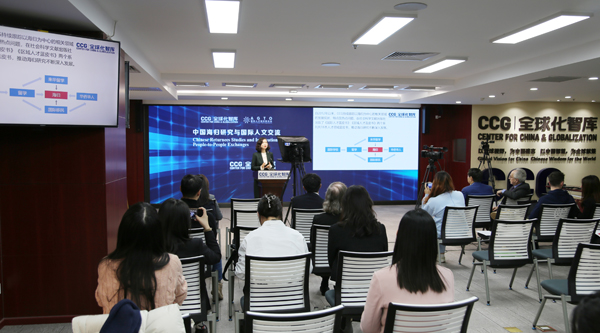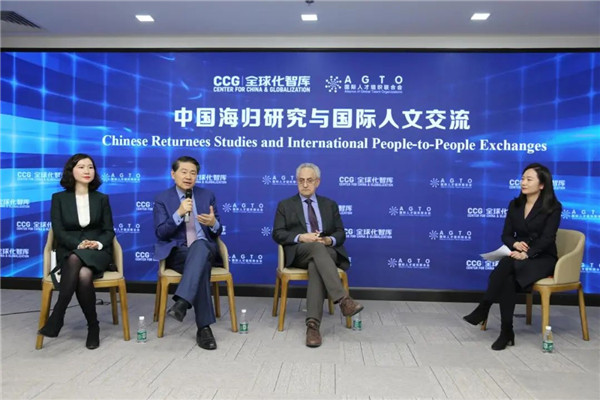【 Independent Journal Review】Skilled Immigrants Are Starting to Choose China Over U.S.
June 21 , 2017In March, the Chinese search engine company Baidu set out on its first overseas college recruitment tour, which included visits to some of California’s top-tier tech schools like UC Berkeley, Stanford, and USC.
But the tech giant wasn’t looking for students to join its research facility in Silicon Valley.
Baidu sought to find tech-savvy students willing to decamp to Beijing to work at its headquarters, for both full-time roles and internships, according to a press release announcing the recruitment effort.
While American students can intern in China, Baidu’s permanent salaried positions in Beijing were mostly aimed at Chinese citizens in the United States. Much like the rest of the world, it’s easier for Chinese companies to hire Chinese citizens rather than trying to sponsor a foreigner’s employment.
It’s not just Baidu trying to repatriate Chinese talent working or studying abroad. Fewer highly skilled immigrants are choosing to work or study in the United States. And China, sensing the opening, is increasingly turning to economic incentives to lure back home their expats pursuing educations elsewhere.
Chinese-born students account for 31 percent of international students enrolled at American universities, making China the top supplier of foreigners in the American educational system.
But changes are afoot. There’s been a steep decline in the percentage of Chinese-born students applying to American universities, according to an American Association of Collegiate Registrars and Admissions Officers survey of 250 higher learning institutions in the United States.
In the last year alone, Chinese applications to undergraduate programs dropped by 25 percent. It was an even bigger drop of 32 percent to graduate programs.
Dr. Wang Huiyao, the president of the Center for China and Globalization(CCG), suggested that recent shifts in immigration rhetoric in the United States may be one of the reasons why fewer Chinese students are staying in the United States for professional opportunities after they complete their studies:
“I think what Donald Trump does has a big psychological impact. A lot of students plan to go and then not go. A lot of students planning to stay will not stay to find a job. So that, I think, is damaging the core competence of the United States.
The United States for the last hundred years has really, that difference, is that they’ve gathered the talents of the world. … That’s what makes America, really, number one. China’s really lacking the national talent.”
And so it is that China is taking advantage of the shift by trying to sweeten the deal for Chinese citizens abroad to join its workforce.
For example, in Shanghai, the municipal government offers Chinese students abroad a fast track for highly sought-after “hukou,” essentially a household residential registration for social, medical, and educational services, in exchange for working in the city, according to Jie Zong, a policy analyst at the Migration Policy Institute.
“Until recently, there hasn’t been a very deliberate strategy for immigration,” Zong told IJR. “Quite recently, [the government has] loosened certain requirements in terms of immigration in China.”
Part of what seems to be triggering anxiety over immigrating to the United States is that since Donald Trump was elected, the ability to obtain work visas has been uncertain.
April’s “Buy American, Hire American” executive order specified that agencies will evaluate the current disbursement of H1-B visas, which are intended for highly skilled workers and academics trying to enter the United States. Before Trump signed the order, the number of H1-B applications dropped in contrast to the previous year, a decreasesome attributed to Trump’s campaign trail rhetoric to reform the program. Soon after the order, immigration services also suspended premium processing for H1-B visa applicants, meaning companies could no longer shell out extra bucks to put their applicants at the head of the line.
Last year, Trump called the H1-B visa “very, very bad” for American workers.
But with the president this week, during a listening session with technology CEOs, White House Press Secretary Sean Spicer signaled Trump could change his mind:
“I think the president is going into this meeting to listen […] But I think there’s also a worker component to this. We’ve talked a lot about visa reform in the past, and I think the president wants to make sure that he listens to the various people who have interest in this subject.”
It’s not just China that’s reacting and adapting to recent immigration uncertainties.
About 70 percent of H1-B visas issued each year go to Indian immigrants working in the tech sector, and following the executive order, Indian tech shares “took a steep fall.”(BY MAEGAN VAZQUEZ)






